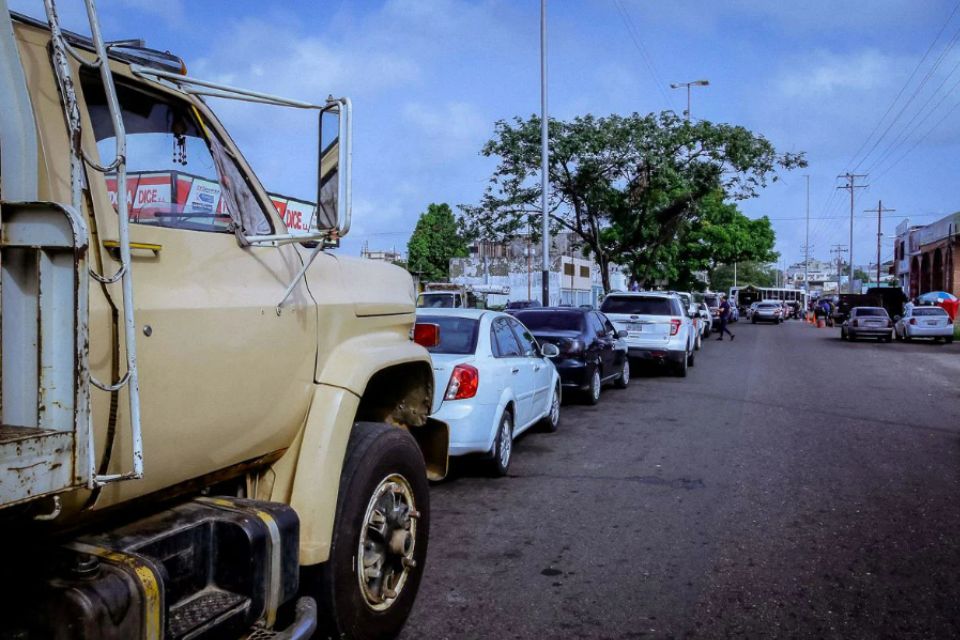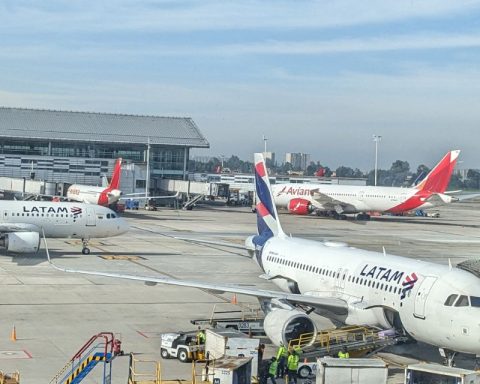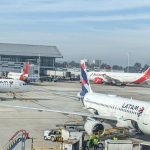In Guyana, the shortage of diesel fuel for trucks is evident. Affected people report that service stations only deliver 200 liters per day per large cargo vehicle, an amount that is only enough for them to reach El Tigre, Anzoátegui state, which is why the return of the lines to fill can be seen.
According to the truck drivers who were waiting their turn to load fuel, this situation also extends to the center of the country in the states of Carabobo, Miranda, Aragua and the Capital District.
In the case of Guyana, they claim that there has been no Heavy Transport Chamber for 15 years, which aggravates the situation because there is no union representative to articulate alliances or solutions for the sector.
«I have two gandolas that have been queuing here at the Puerto Ordaz stations and at the morochas on Guayana Avenue since Thursday. “They didn’t put it in today and left it for tomorrow,” said one owner.
*Read also: Some 500 fishing boats are stranded due to lack of gasoline in Nueva Esparta
However, he noted that on the plain road “diesel is always available, especially in the town of Chaguaramas due to agriculture and livestock.”
Given this situation, parliamentarian José Guerra, Venezuelan economist, writer and politician, explained that the diesel crisis is due to the difficulty of the oil refining process that occurs in the El Palito refinery, the Paraguaná Refining Complex and the refinery. of Puerto La Cruz, which have been affected by constant failures in the electrical supply.
«It also has to do with the way it is managed in the refineries, since oil enters the process to obtain derivatives such as gasoline, diesel, kerosene and that is the reality of this crisis that generates the low distribution of gasoline and diesel. », he explained.
Guerra explained that the Venezuelan refining complex has an installed capacity to refine one million 200 thousand barrels a day, to extract derivatives such as the A1 jet, which is fuel for airplanes, among other products, but that today “obviously in the country they are only processed 200 thousand barrels per day of which the majority is gasoline,” he stated, adding that it is “here when the fuel deficit is evident, to which is added the high deterioration of the transportation fleet, which makes this situation worse.”
With this panorama, the result has been that in recent times the shortage of diesel (or diesel) in the country has worsened, harming the functioning of the productive apparatus that energizes the national economy, which aggravates the complex humanitarian crisis that affects the country. , since this fuel is what supplies heavy-duty trucks that transport vegetables, fruits and vegetables, among other items.
The transporters assure that the situation in Guyana affects more than 300 drivers who see their transfers paralyzed. Some claim that at certain stations there is an alternative: pay between $40 and $60 to guarantee a place in line.
Some also, protecting their identity to avoid being persecuted by the Government, expressed that the situation continues and, sometimes, they solve the supply temporarily or temporarily, but that after a short time the paralysis of supply begins again. and therefore, of this type of transport.
In previous years, diesel shortages have caused entire crops to be lost in western states, because there is no way to get them to the rest of the country.
They reject Venezuelans getting used to the perennial fuel shortage, when Venezuela is an oil-producing country, especially when this aggravates the supply and makes products more expensive.

















